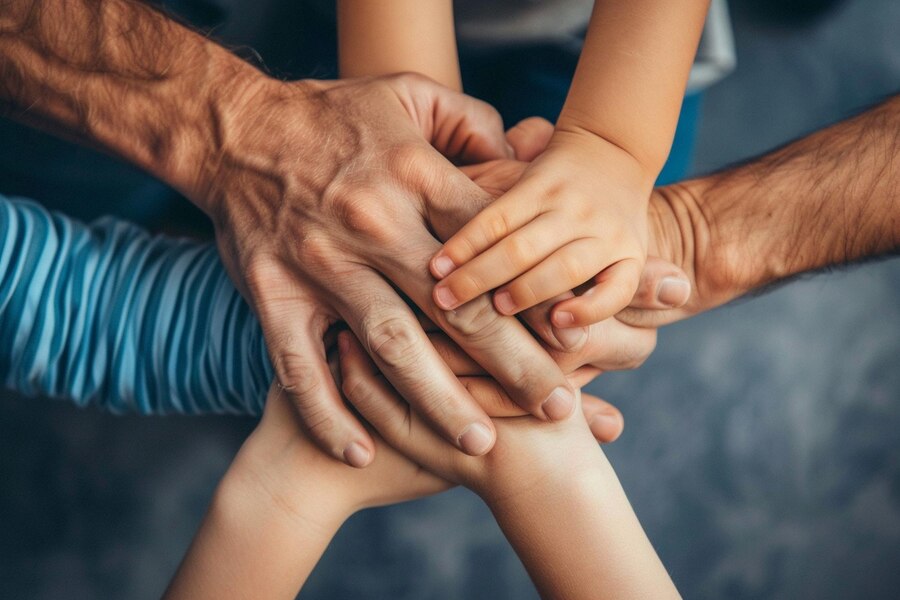Rehab Programs for Substance Abuse
Substance abuse is a complex and challenging issue that affects millions of individuals and families. Finding the right rehab program is a critical step toward recovery and long-term sobriety. With various treatment options available, it can be overwhelming to determine which approach is best suited for your needs. This guide provides an overview of the different types of rehab programs for substance abuse, the key components of successful treatment, and how to choose the right path for recovery.
The Different Types of Rehab Programs for Substance Abuse
Rehab programs for substance abuse come in many forms, each designed to address the specific needs of individuals struggling with addiction. These programs can be broadly categorized into inpatient, outpatient, and specialized treatment programs. Inpatient rehab involves residing at a treatment facility for a set period, typically 30 to 90 days, during which individuals receive intensive care and support. Outpatient rehab, on the other hand, allows individuals to live at home while attending treatment sessions at a clinic or facility, offering more flexibility for those with work or family obligations.
Specialized programs may focus on specific populations, such as adolescents, veterans, or individuals with co-occurring mental health disorders. These programs often include tailored therapies and interventions that address the unique challenges faced by these groups. Understanding the different types of rehab programs can help you make an informed decision about which approach is best suited for your recovery journey.
Inpatient vs. Outpatient Rehab: Which is Right for You?
Choosing between inpatient and outpatient rehab depends on several factors, including the severity of the addiction, the presence of co-occurring disorders, and personal circumstances. Inpatient rehab offers a structured environment free from the triggers and temptations of daily life, making it an ideal choice for those with severe addiction or a history of relapse. The immersive nature of inpatient rehab provides round-the-clock medical care, therapy, and support, fostering a strong foundation for recovery.
Outpatient rehab is more flexible, allowing individuals to maintain their daily responsibilities while receiving treatment. This option is suitable for those with a supportive home environment and a less severe addiction. Outpatient programs vary in intensity, with some offering daily sessions and others providing more periodic support. The choice between inpatient and outpatient rehab should be based on a comprehensive assessment of your needs and circumstances, often in consultation with a healthcare professional.
The Role of Detoxification in Substance Abuse Rehab
Detoxification, or detox, is often the first step in substance abuse rehab. It involves the process of safely removing drugs or alcohol from the body under medical supervision. Detox is crucial because withdrawal symptoms can be severe, and in some cases, life-threatening. A medically supervised detox provides a safe and controlled environment where individuals can be monitored and treated for withdrawal symptoms.
Detox alone is not a complete treatment for substance abuse but rather a necessary precursor to more comprehensive therapy. It prepares the body and mind for the challenges of rehab by eliminating physical dependence on substances, allowing individuals to focus on the psychological and behavioral aspects of their addiction during subsequent treatment phases.
Evidence-Based Therapies in Substance Abuse Treatment
Evidence-based therapies are a cornerstone of effective substance abuse treatment. These therapies are supported by scientific research and have been proven to be effective in treating addiction. Cognitive-behavioral therapy (CBT) is one of the most widely used approaches, helping individuals identify and change negative thought patterns and behaviors associated with substance use.
Other evidence-based therapies include motivational interviewing, which helps individuals find the motivation to change, and contingency management, which uses positive reinforcement to encourage sobriety. These therapies are often combined with other treatment modalities to create a comprehensive and personalized treatment plan that addresses the unique needs of each individual.
Behavioral Therapies: CBT, DBT, and More
Behavioral therapies play a critical role in substance abuse treatment by addressing the psychological aspects of addiction. Cognitive-behavioral therapy (CBT) is a common approach that helps individuals identify and change harmful thought patterns and behaviors. It is highly effective in treating substance abuse and preventing relapse by equipping individuals with the skills needed to cope with triggers and high-risk situations.
Dialectical behavior therapy (DBT) is another form of behavioral therapy used in addiction treatment. Originally developed for treating borderline personality disorder, DBT has been adapted to help individuals manage intense emotions and improve interpersonal relationships. It combines mindfulness practices with cognitive-behavioral techniques to promote emotional regulation and reduce the likelihood of relapse.
Other behavioral therapies, such as contingency management and rational emotive behavior therapy (REBT), may also be integrated into a comprehensive treatment plan, depending on the individual’s needs and the specific substance being abused.
Integrating Medication-Assisted Treatment (MAT)
Medication-assisted treatment (MAT) is an evidence-based approach that combines behavioral therapy with the use of medications to treat substance use disorders. MAT is particularly effective for individuals struggling with opioid or alcohol addiction, as it helps to reduce cravings and withdrawal symptoms, making it easier to focus on recovery.
Medications used in MAT, such as methadone, buprenorphine, and naltrexone, work by normalizing brain chemistry, blocking the euphoric effects of substances, and stabilizing brain function. MAT is most effective when combined with counseling and behavioral therapies, creating a holistic approach to treatment that addresses both the physical and psychological aspects of addiction.

The Importance of Counseling and Support Groups in Rehab
Counseling and support groups are integral components of substance abuse rehab, providing individuals with the emotional support and guidance needed to navigate the recovery process. Individual counseling allows for personalized therapy sessions where individuals can explore the underlying causes of their addiction, develop coping strategies, and set goals for their recovery.
Support groups, such as Alcoholics Anonymous (AA) or Narcotics Anonymous (NA), offer peer support and a sense of community. These groups provide a safe space for individuals to share their experiences, receive encouragement, and build connections with others who are on a similar journey. The combination of counseling and support groups fosters a supportive environment that promotes long-term recovery and helps prevent relapse.
Holistic Approaches in Substance Abuse Rehabilitation
Holistic approaches to substance abuse rehabilitation focus on treating the whole person, not just the addiction. These approaches incorporate a variety of therapies that address the physical, mental, emotional, and spiritual aspects of recovery. Holistic treatments may include yoga, meditation, acupuncture, art therapy, and nutritional counseling, all of which contribute to overall well-being and help individuals achieve a balanced and healthy lifestyle.
Holistic rehab programs recognize that addiction affects every aspect of a person’s life, and therefore, recovery should be comprehensive and integrative. By addressing all dimensions of health, holistic approaches can enhance the effectiveness of traditional treatments and provide individuals with the tools they need to achieve long-term sobriety.
Addressing Co-Occurring Mental Health Disorders in Rehab
Many individuals with substance use disorders also struggle with co-occurring mental health disorders, such as depression, anxiety, or PTSD. Addressing these co-occurring disorders is essential for successful rehab, as untreated mental health issues can significantly increase the risk of relapse. Integrated treatment programs that simultaneously address substance abuse and mental health disorders are the most effective in promoting recovery.
These programs typically involve a combination of medication management, psychotherapy, and behavioral therapies tailored to address both conditions. By treating the whole person, integrated treatment helps individuals achieve stability and improve their overall quality of life.
The Role of Family in Substance Abuse Recovery
Family involvement is a critical factor in the success of substance abuse recovery. Family members can provide essential support, encouragement, and accountability during the rehab process. Many rehab programs offer family therapy sessions, where family members can learn about addiction, develop better communication skills, and work through issues that may have contributed to the substance abuse.
Family therapy helps to strengthen relationships, rebuild trust, and create a supportive home environment that fosters recovery. Involving the family in the rehab process also increases the likelihood of long-term success, as individuals are more likely to stay committed to their recovery when they have a strong support system.
Tailoring Rehab Programs to Specific Populations: Teens, Veterans, and More
Substance abuse affects different populations in unique ways, and rehab programs must be tailored to meet the specific needs of these groups. For example, teens may require specialized programs that address the developmental challenges and peer pressure they face. Veterans, on the other hand, may need treatment that addresses trauma, PTSD, and other issues related to their military service.
Tailoring rehab programs to specific populations ensures that individuals receive the most relevant and effective care. This approach recognizes the diverse experiences and challenges that different groups face and provides targeted interventions that enhance the likelihood of successful recovery.
Aftercare and Relapse Prevention Strategies
Aftercare is a critical component of substance abuse rehab, focusing on the ongoing support and strategies needed to maintain sobriety after treatment. Relapse prevention strategies are designed to help individuals identify triggers, develop coping skills, and create a plan for managing potential challenges in their recovery journey.
Aftercare programs may include continued therapy, support group participation, sober living arrangements, and regular check-ins with a treatment provider. By providing a structured plan for life after rehab, aftercare programs help individuals stay on track, avoid relapse, and continue to grow in their recovery.
The Path to Recovery Through Rehab Programs
Rehab programs for substance abuse offer a path to recovery that is both comprehensive and personalized. By understanding the different types of rehab programs and the key components of effective treatment, you can make an informed decision about the best approach for your recovery journey. Whether you choose inpatient, outpatient, or a specialized program, the support and care provided through rehab can help you overcome addiction and achieve lasting sobriety.
If you or a loved one is struggling with substance abuse, reach out to us today to learn more about our rehab programs and how we can support you on the path to recovery. Together, we can help you build a healthier, more fulfilling life.
-
What are the different types of rehab programs available for substance abuse? Rehab programs vary in intensity and duration, including inpatient, outpatient, intensive outpatient, and partial hospitalization programs.
-
How do I choose the right rehab program for my specific needs? Consider factors like the severity of your addiction, your support system, insurance coverage, and the program’s treatment approach.
-
What can I expect from a rehab program? Rehab programs typically involve therapy, support groups, and potentially medication-assisted treatment. They focus on addressing the physical, emotional, and psychological aspects of addiction.
-
What are the benefits of seeking professional rehab for substance abuse? Professional guidance, a supportive community, and evidence-based treatment can significantly improve recovery chances and long-term outcomes.
-
How long does a typical rehab program last? The duration varies depending on individual needs and the severity of addiction. It can range from a few weeks to several months.
-
What are the costs associated with rehab programs? Costs can vary based on the type of program, location, and insurance coverage. Many programs offer financial assistance or payment plans.
-
Can I continue working or attending school while in rehab? Some programs allow for limited work or school commitments, while others require full focus on recovery.
-
What is the role of family involvement in rehab programs? Family therapy and support groups can be beneficial for both the individual and their loved ones. They offer understanding, encouragement, and practical guidance.
-
Are there rehab programs that specialize in specific substances or demographics? Yes, there are programs tailored to specific needs, such as substance-specific programs or those for young adults, women, or veterans.
-
How can I get started with a rehab program? Reach out to treatment centers, discuss your needs, and explore available options. Many centers offer free consultations.




















Recent Comments